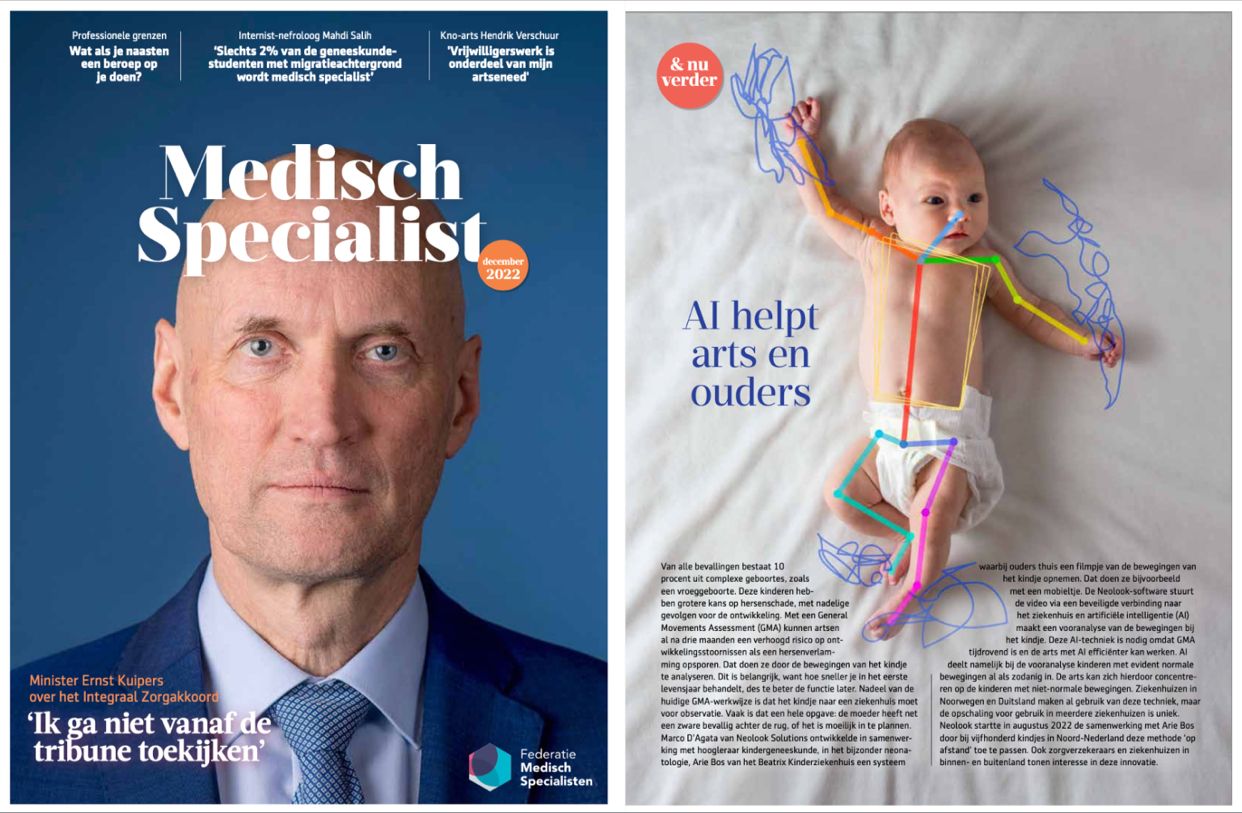
How Our Software Is Making a Difference for 100 Premature Babies
An estimated 13.4 million babies have been born prematurely this year, and approximately 335,000 of them are at risk of serious physical or physiological problems—problems that could confine them to a wheelchair, prevent them from participating in sports, playing music, or dancing to their favorite songs. Thankfully, there is hope. Trained professionals can now perform diagnoses that allow early intervention. By analyzing natural movement patterns, professionals can accurately identify developmental shortcomings and address these issues through physical therapy while the brain is still 'plastic' and adaptable. This breakthrough promises significant benefits not only for prematurely born babies but also for their caregivers and society as a whole. The ultimate goal is to provide 335,000 premature babies each year with an equal quality of life. But how do we achieve this ambitious goal?
With the current way of working, trained professionals face a nearly impossible task in reaching this target. They must navigate time-consuming logistics to obtain quality recordings while managing data. The process starts with scheduling an appointment with the parents, followed by physically commuting to their homes. Once there, they set up a camera tripod, position it for the best angle, and finally commute back to analyze the recording at their desk. Each step carries the risk of errors—from parents forgetting the appointment to the baby being distracted by the family dog—any of which could require a complete redo. My team and I have saved professionals countless hours and helped them capture quality recordings remotely for one hundred babies so far. Here's how we did it.
We have developed a web application that empowers professionals to easily manage, record, and analyse videos of babies. Parents receive a one-time password, detailed instructions, and a link to complete the recording—all using just their smartphone. No extra equipment like tripods or professional cameras, or the installation of an app. With a stable internet connection, the recording can be of sufficient quality for professionals to perform the analysis. A process that once took nearly half a day now takes just 15 minutes. The exciting part is that, in most situations, we can fully automate the process, requiring almost no time from the professionals and enabling the screening of hundreds of babies per day. enabling the screening of hundreds of babies per day.
The possibilities that AI offer is not futuristic--it's here right now. The goal of 335 thousand prematures per year may not be beyond reach. AI has been an application in many fields, and it has the capacity to make a meaningful contribution here as well. The possibilities are unfolding before us, and the progress so far is just the beginning.